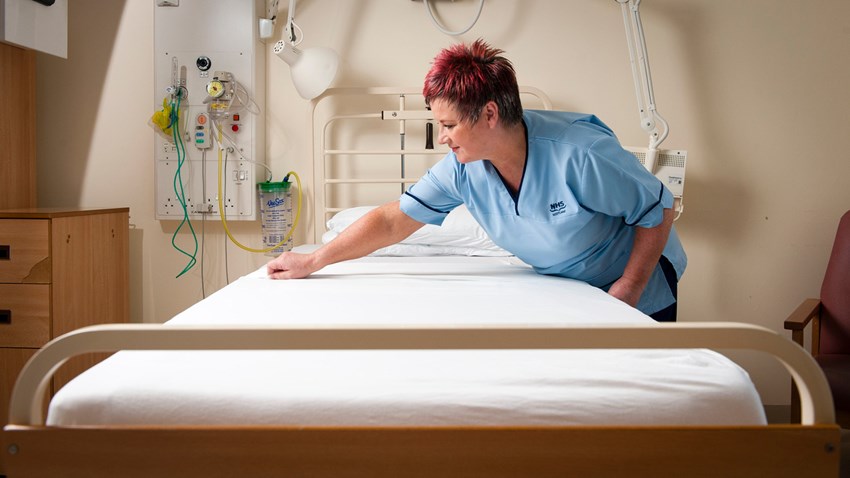Previous
Dietetic support worker
To become a maternity care assistant in NHSScotland, you’ll need experience as a maternity support worker. You must complete a Certificate of Higher Education Maternity Care Assistant qualification at SCQF level 7. You’ll also work towards a related healthcare qualification at SCQF level 8.
Maternity care assistants (MCAs) provide support and evidence-based advice to women or birthing people and their families during the antenatal, intrapartum, and postnatal periods of childbirth. They are supervised by registered midwives.
MCAs help to plan, deliver, and evaluate maternity care. They are vital in creating a positive and nurturing environment that helps families thrive.

Maternity care assistants usually begin their careers as support workers in maternity care services. Find out more about the role of a maternity support worker.

You may find it helpful to get some healthcare experience by doing a work placement or volunteering. You’ll get training, increase your knowledge, and learn new skills. This could help you when applying for a new job with NHSScotland.
To become a maternity care assistant in NHSScotland, you must be working as a maternity support worker. You’ll need to complete a certificate of higher education or a personal development award and be supported by your NHS employer.
The University of the West of Scotland delivers the CertHE Maternity Care Assistant course at SCQF level 7, fully funded by the Scottish Government.
It will help you to:
Find out more about the Certificate of Higher Education Maternity Care Assistant course.
The PDA Developing Professional Practice in Health and Social Care at SCQF level 7 is also available to maternity support workers. Find out where you can take this course.
As a maternity care assistant, you’ll provide clinical support to registered midwives. You’ll take a holistic approach to midwifery care that meets the needs of women, birthing people, babies, and families.
Tasks include:
You'll need these skills:
You could work with:
You could work in:
Throughout your career, you must keep your knowledge and skills up to date through reflective practice and continuing professional development (CPD).
You’ll participate in career development planning to develop personally and professionally through training and education. This includes completing mandatory training, such as:
You must also complete role-specific training, including obstetric emergency and neonatal resuscitation.
Learn more about career development support on Support Worker Central.
While working in the NHS, you’ll have access to learning and development opportunities to help you progress in your career. This could mean taking on more responsibilities or moving to an associate practice educator role.
If you’re a maternity care assistant, you could complete an undergraduate degree to become a registered midwife. Your CertHE Maternity Care Assistant qualification is a recognised entry option to pre-registration undergraduate midwifery degree programmes in Scotland.
Search for undergraduate midwifery degree programmes on My World of Work.
The Royal College of Midwives is a trade union and professional organisation that supports the whole midwifery team.

Discover the skills and qualifications you’ll need for each role and what the work will be like.
Explore careers
We'll guide you through the recruitment process, from applying online to interview preparation.
Discover more